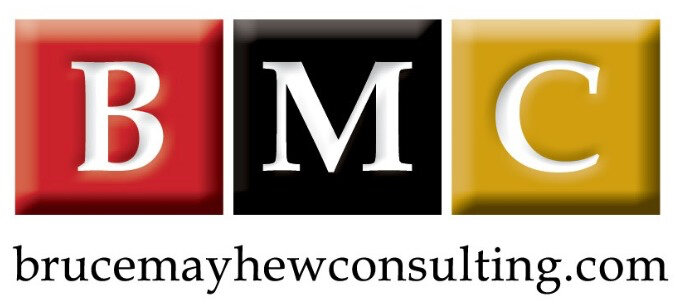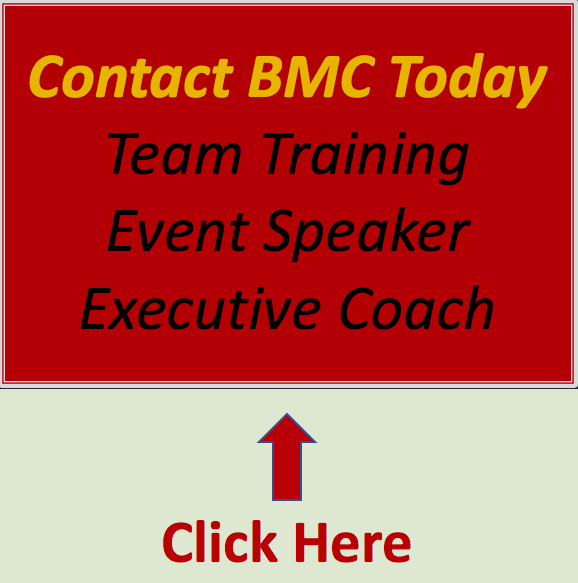Creating a Multi-Generational Workplace Culture
/Everyone wants to know they are a valued part of the team regardless of what generation they belong to. And because generational differences of Boomers, Gen X, Millennials and Gen Z employees matter when creating a healthy multi-generational workplace, I thought I would take a moment to discuss how generational differences often influence the way your employees may or may not respond four important motivators.
I also want to point out that besides generational differences, there are many other variables including gender differences, ethnic and cultural differences, feelings of trust and respect that are also incredibly important when creating a healthy multi-generational workplace culture. But for now, lets explore how each generation may interpret and be inspired by the following four important opportunities:
Recognition
Autonomy
Coaching/Continuous Learning
Opportunity for Advancement
Additional Note: While the list above is not exhaustive, I have purposely not included salary in the above list. I do this because salary is considered a base trait – that as long as an individual is being paid fairly, monetary reward becomes a far less reliable and effective motivator. So, lets take money off the table and look at other ways to create a multi-generational workplace culture.
Recognition
Everyone enjoys recognition. And while Gen Zers and Millennials are used to frequent recognition and Gen Xers and Boomers are used to less frequent recognition, whether an individual prefers to be recognized in publicly versus more privately is often more dependent on if they are an introvert versus extrovert than what generation they belong to.
The great question is, “How frequently and how sincerely do you recognize your team and team members?” Recognition doesn’t have to be a party - and please don’t start an ‘Employee of the Month’ program because recognizing one person once a month is about as demotivating as you can get. Instead, look for opportunities where you can say to someone, “Your input into this report is amazing” or “You’ve worked really hard on that sales pitch and it shows”. Recognizing someones contribution and/or effort in-the-moment is right up there with some of the best recognition you can offer… ever.
Autonomy
Historically, autonomy in the workplace was largely defined as the opportunity to work from home and seen as a perk – something employees had to deserve. Most leaders now recognize that supporting autonomy can encompasses many things like flexible hours, what to work on, where to sit (if in-office) and even professional development opportunities… as well as the choice to work from home (or perhaps more accurately, working remotely).
Thankfully even the idea that autonomy as a ‘perk’ is being replaced by the reality that most people who work remotely actually are more productive (not less), are more creative, have greater job satisfaction and employee loyalty to mention just a few benefits.
So, as you strive to create a healthy multi-generational workplace culture, look to what flexibility you can offer your employees that will help them. Do they need time to take their kids into daycare before coming to work? Do they love being in the office because it gives them a break from their family and they are naturally extroverted? Is there a project that has nothing to do with their current job that you can assign them to because you know it is related to a career path they aspire to? Those are all healthy examples of how you can incorporate autonomy into your workplace culture.
Coaching / Continuous Learning
Coaching is something every leader should be prepared to do – to both their team and to the individuals they support. Coaching ties in well to a workplace culture that promotes continuous learning, helping the team and the company stay fresh while also helping to create an inclusive, multi-generational workplace culture and to promote both collaborative and inclusive behaviour. In addition, coaching, continuous learning and being inclusive are especially important to Gen Z and Millennials.
I invite you to recognize these two generations enjoy being coached AS WELL AS coaching others, sharing their experience and helping others grow. Reverse coaching and/or reverse mentoring are important opportunities for individual and team motivation. And don’t worry if your employees are working remotely. Help employees meet other employees outside of their immediate circle and build new, meaningful relationships from afar by implementing a virtual mentorship program. These relationships will not only create meaning and benefit for them in part by satisfying our natural need to connect with one another, they will also create new synergies within the company and improve employee productivity and loyalty.
Wondering how to start and who to include? During your one-on-one meetings with each of your team, be sure to ask them how they want to be coached and if they see opportunities where they can give back and coach others.
Opportunity for Advancement
Higher salary and opportunities for advancement have always been high on the list for Boomers and certainly of interest for Generation Xers. Unfortunately for Gen Xers, the economic downturns of the late 1980’s, early 2000’s and then again around 2008/2009 meant that fewer Boomers left the employment market for their expected “Freedom 55”. This meant the career advancement opportunities and higher salaries didn’t materialize as quickly as young Gen Xers expected. Thankfully, Gen Xers are finally getting their chance, even though they are now also competing for leadership positions against bright, well-educated and technologically save Millennials.
It is still worth taking a moment of pause here however because the traditional definition of ‘Opportunity for Advancement’ is shifting. Millennials and Gen Zers don’t only see advancement as a promotion. They also see advancement as opportunities to gain experience and opportunities to broaden their network. So, while an employee may stay in their current position, take time to learn about what they want to learn and where they would like to gain experience because it’s possible you can inspire a very motivated employee by giving them opportunities that are easily within reach and where they actually may be able to add a new point of view.
Conclusion
If you are a leader I urge you to learn as much about everyone you work with and especially people who report to you. What are their wants, needs and preferences as they relate to what they work on, how they like to work, how they like to be rewarded and connected to their preferences specific to working remotely (or not). What are their career aspirations? How can you support workplace training for each of the generations who count on you?
In addition, take a moment to consider your own leadership style and how you support, mentor and coach your team. For example, is your leadership preference lean toward creating a workplace culture where you:
Give team members a lot of autonomy and little supervision - let them come to you when they have questions or need something
Intentionally work at creating a culture of equality, diversity, openness and belonging
Feel you have to have total control and make all (or most) of decisions - especially the critical high-profile decisions
Value collaboration and input from all stakeholders, listen openly, and watch out of biases in order to explore all options before making a decision
Focus on strategy, vision and values while making sure everyone has the resources they need to deliver
There is great value for todays leaders to focus on their soft skills and to know what inspires and motivates themselves and the people around them as they lead and create a multigenerational workplace culture.
Thank you for reading. I hope you have enjoyed.
Bruce
About Bruce and Bruce Mayhew Consulting.
Bruce is Corporate Trainer and Executive Coach.
As a Corporate Trainer Bruce Mayhew (of BMC) specialize in customized Time Management Training, Email Etiquette Training, Leadership & New Leadership Development, Generational Differences and other soft skills training solutions in Toronto and across Canada. Bruce is also an Executive Coach to a few select clients.
BMC helps your greatest assets think productive and be productive.
Bruce is an experienced motivational speaker in Toronto and has inspired audiences across Canada and within the USA and the UK. Bruce works hard to always make sure your training event, conference, retreat, or annual general meeting is a success.



